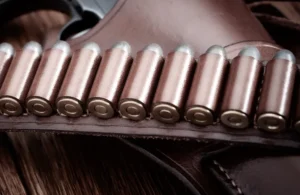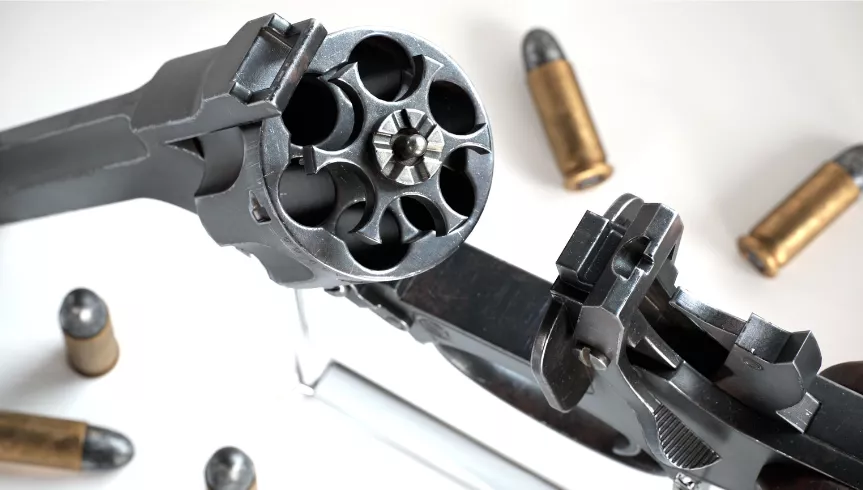Although Hopes Dim, Let’s Not Abandon the Push for Meaningful Gun Control Laws
November 20, 2024

The school shooting at the Apalachee High School in Winder, Georgia last September made headlines. As usual, there were immediate calls for more gun control legislation from some corners, while others continued to argue that the problem behind gun violence is mental illness, not the availability of firearms. And as usual, the push for sensible gun control laws led to no meaningful action. So far, there have been at least 50 mass school shootings this year in the U.S. During their presidential debate, even Vice President Kamala Harris, who has consistently supported gun regulations like bans on assault rifles and red flag laws, made a point that she herself is a gun owner and declared “We’re not taking away anyone’s guns…”
That does not mean we need to abandon attention to the evidence that clearly shows the harms associated with widespread gun ownership. That evidence must be considered when we discuss the pros and cons of stronger nationwide gun control regulations. First, we must remember that firearm-associated injuries have been the leading cause of death for U.S. American children and adolescents since 2020, exceeding the number who die from automobile crashes. Most of those gun-related deaths are suicides. So many studies have now shown that the risk of suicide is greatest when there are guns in the home that this is no longer in question. F. Perry Wilson, associate professor of medicine and public health and director of Yale’s Clinical and Translational Research Accelerator, points to a study showing a paradoxical association between teaching children about gun safety and an increased incidence of unsafe home gun storage. That is, parents who attempted to teach their children about safe handling of guns appear to adopt a false sense of security and are more likely to leave their guns unlocked and loaded. That is a well-known invitation for disaster. Having a gun at home clearly puts children who live there at serious risk. Talking to kids about guns is not a viable solution. Laws that mandate guns at home be kept locked and unloaded might help.
There Are Many Negative Outcomes Associated with Gun Availability
That is just one of the many pieces of data that point to the hazardous relationship between easy access to guns and devastating effects on health and safety. In a probing op-ed piece in the New York Times on September 28, German Lopez outlined a host of other data points that reinforce the idea that owning a gun makes everyone less safe. Here are some of the consequences of gun availability in America that Lopez identified:
- Guns manufactured in the U.S. fuel drug cartel violence in Mexico and Central American countries, causing people to flee those countries and attempt to migrate to the U.S. About two-thirds of guns involved in crimes in Mexico, Lopez says, can be traced back to the U.S. “The cartels and their traffickers are overwhelmingly armed with American guns,” he writes. Thus, American guns are in part responsible for mass migration and drug-related deaths in the U.S.
- The U.S. has both the highest number of guns and the highest murder rate of any peer nation. Lopez notes that American police officers are trained to expect the presence of a gun when responding to a call, something not experienced by law enforcement officers in other countries. Gun ownership, he says, correlates with police shootings and “That fear can also help explain the current hiring crisis for police officers.” Law enforcement officers’ lives are clearly jeopardized by widespread gun availability, leading people to shun becoming police officers, making everyone less safe.
- A large proportion of gun violence occurs in a very small number of neighborhoods, which “drives out businesses and jobs, and pushes down home values,” Lopez writes. “Public services deteriorate because of the lower tax base.” This leads to a downward economic spiral in these communities.
We see then what the data continue to show us: that widespread gun availability leads to suicides, murders, school shootings, police shootings, mass immigration, drug deaths, and economic woes for already distressed communities. What then is the argument in favor of all these guns?
The Myth of Firearm Protection
One argument in favor of easy firearm access is that we need guns to protect us from tyrants. That apparently was the thinking of the framers of the U.S. Constitution, who wrote the Second Amendment that is today interpreted as protecting the “right to bear arms.” That argument, of course, seems silly in a modern context, when it is inconceivable that local militias will ever be a factor in protecting citizens’ rights. A second argument is that people need guns to protect themselves and their families. Once again, Vice President Harris echoed this sentiment when she recently declared that “If somebody breaks into my house, they’re getting shot.” This argument is also hard to sustain: there is very little evidence that personal gun ownership is used to defend against home intruders to any meaningful extent. On the other hand, as we have noted, evidence strongly shows that people living in a home with a gun are strongly at risk of being injured or killed by that gunThe risk and balance equation here is not even close: guns in the home offer no protection.
Federal Courts Move Away from Sensible Gun Regulations
Sadly, federal courts seem to be moving in a direction that is opposite the evidence. Starting with the 2008 Supreme Court decision in District of Columbia v Heller, courts increasingly interpret the second amendment to increase the ability of people to own guns without restrictions. Right now, cases are winding their way through different courts that challenge the ability of states to restrict carrying a gun in sensitive places, like hospitals, restaurants, and large public gatherings. We are facing the unbelievable prospect of more guns in public places if these court decisions continue in the current direction.
If we follow the data here, we would be doing the opposite. Everything we know from abundant and rigorously performed research tells us that gun ownership is dangerous. Nothing indicates that gun ownership protects us. Blustering comments about shooting home intruders are unsupported by the evidence. But how do we convince the public and their elected leaders to pay attention to the facts about gun ownership, to recognize that the widespread availability of guns in the U.S. is not only responsible for terrible tragedies like what occurred at the Apalachee High School, it is also responsible for children and adolescents dying by suicide, for millions of people being forced to flee from countries where American guns support drug cartels, and for economic devastation in some of our poorest neighborhoods? This is too horrible a problem to become complacent about or to throw up our hands in defeat. We need to press politicians to stop echoing gun myths and start taking action to protect us from a public health menace.
Related Posts

Gun Violence and Mental Illness: Another look at the Proposed Connection
Posted in Guns
Mental illness is not a major cause of gun violence, but we still see this claim a lot. What's behind it?